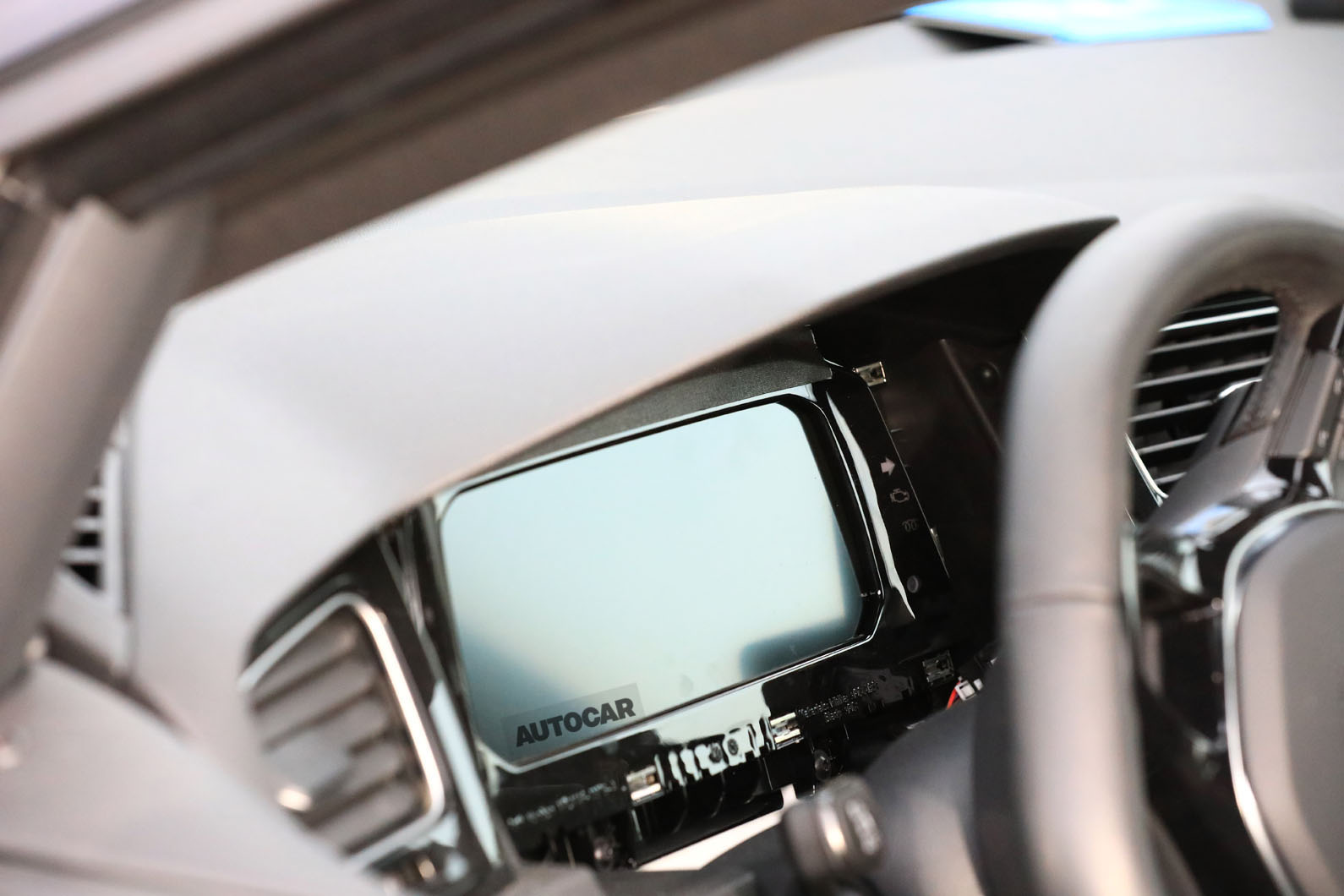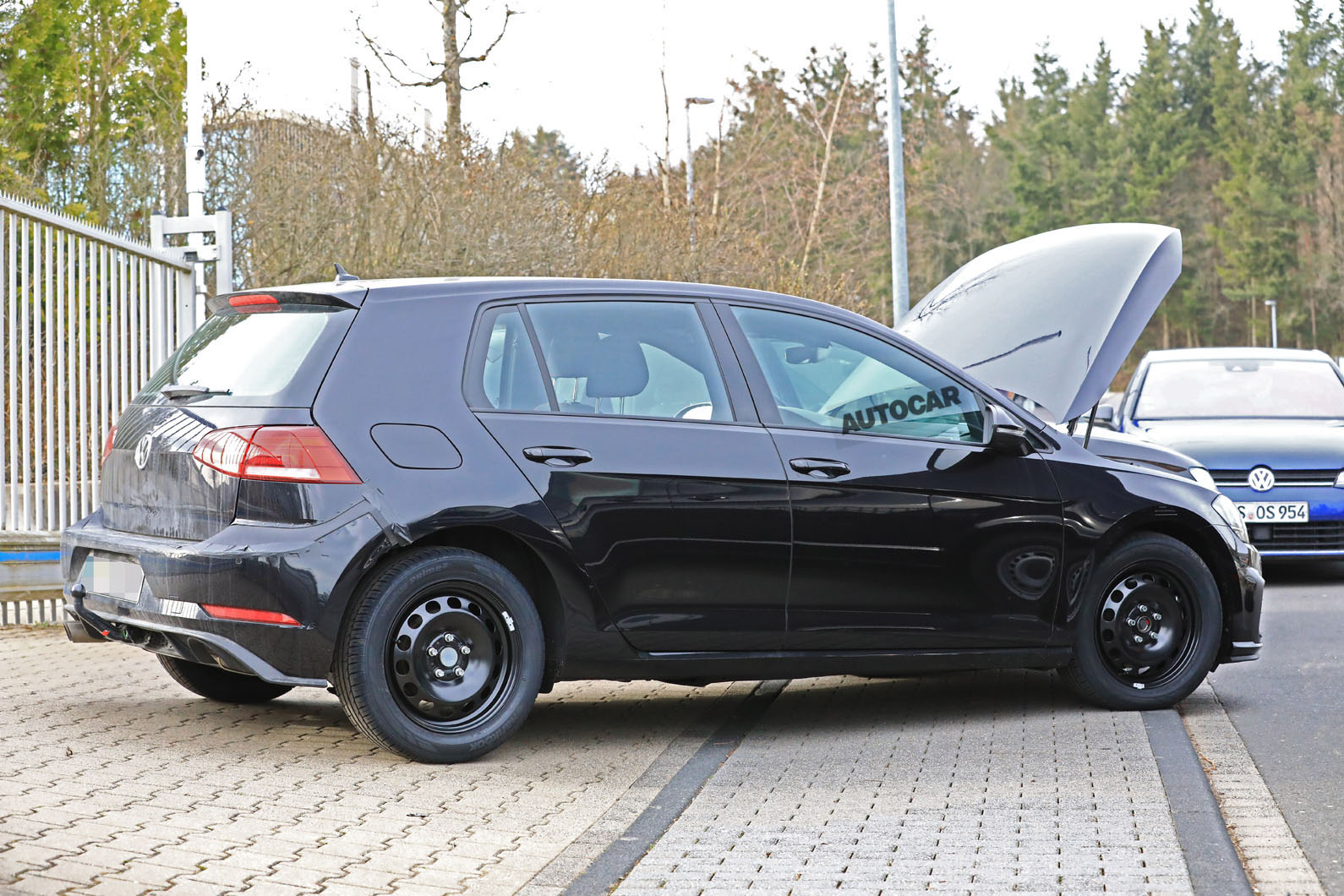2019 Volkswagen Golf Mk8: first pictures of mule show new cabin tech
2019 Volkswagen Golf Mk8: first pictures of mule show new cabin tech
The sighting, which also presented our spy snapper with an opportunity to photograph the car's four-cylinder engine, comes three months after VW board member for procurement Ralf Brandstätter said that the next Golf was at an advanced stage of development
The sighting, which also presented our spy snapper with an opportunity to photograph the car's four-cylinder engine, comes three months after VW board member for procurement Ralf Brandstätter said that the next Golf was at an advanced stage of development
Despite the upheaval brought to its operations by the diesel emissions scandal and subsequent legal complications in key markets, VW has held firm to the original launch schedule for the car. That means volume-selling versions of the new Golf are planned to reach UK showrooms in the final quarter of 2019.
Although the first sighting provides us with no clues as to how the car will look, an earlier sketch (below) released by VW suggests the car will retain the wedge shape of its most recent forebears. Our new test mule sighting adds to this by indicating that the cabin will take an evolutionary step forward, with a larger digital instrument cluster and new centre console part of the available upgrades (more of which below).

 The GTI goes hybrid
The GTI goes hybrid
Comments
Post a Comment